The World Economic Forum just released the news — By 2025, the time spent on tasks at work by humans and machines will be equal. And no surprise, it will continue to widen the job skills gap.
I put in my dating profile last year that my biggest fear was the rise of robots, and I thought that was a good joke. Nope.
By 2025 they estimate 85 million jobs will be displaced by machines, but 97 million new jobs will emerge — but only if labor is available. That doesn’t include the job of robot hunter — yet.
What Jobs and Skills Will Be Lost?
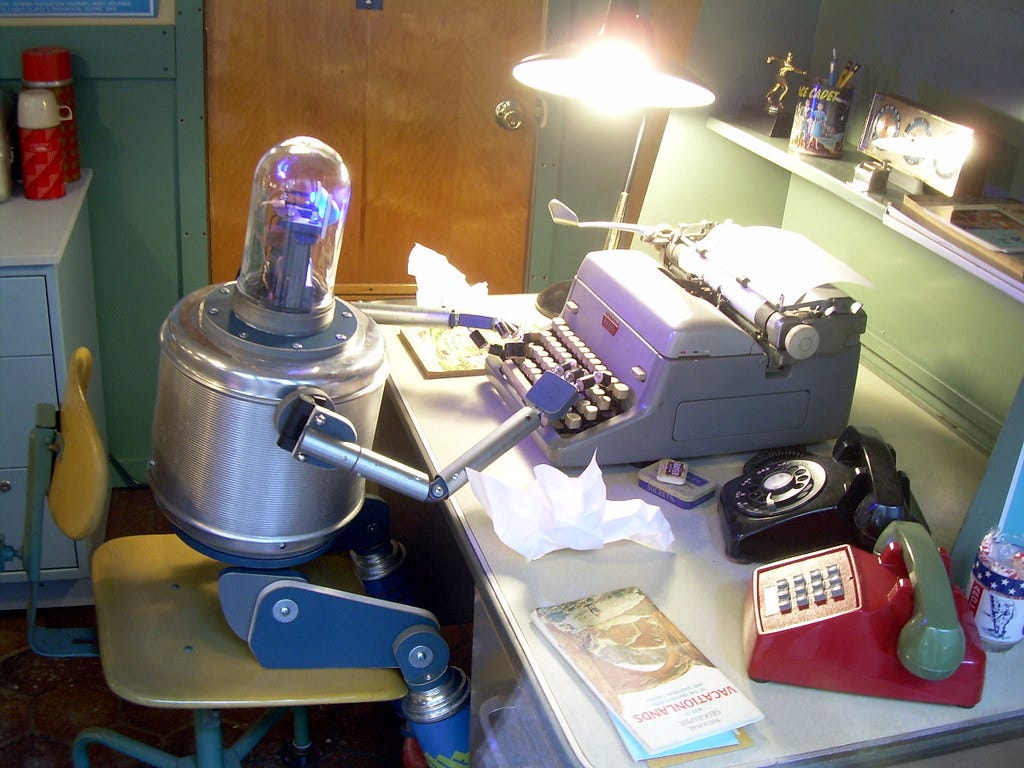
In two months the COVID-19 pandemic has destroyed more jobs than the Great Recession did in two years — accelerating the transition to machines and technology.
Covid has already made the decision on this transition for many employers — 43% of businesses are set to reduce their workforce due to technology integration and 41% plan to expand their use of contractors for task-specialized work. Machines will take over most data processing, job search tasks, administration, and even complex and technical activities.
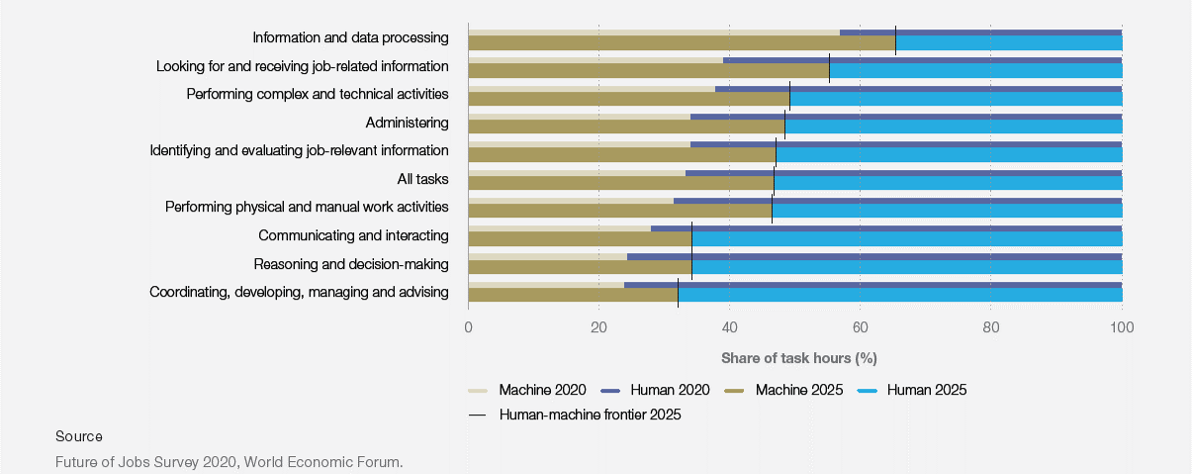
Even more concerning — some of the jobs lost due to Covid may never return. A little more than 80% of businesses are accelerating the automation of their work processes and expanding their use of remote work. As many as half may completely automate tasks.
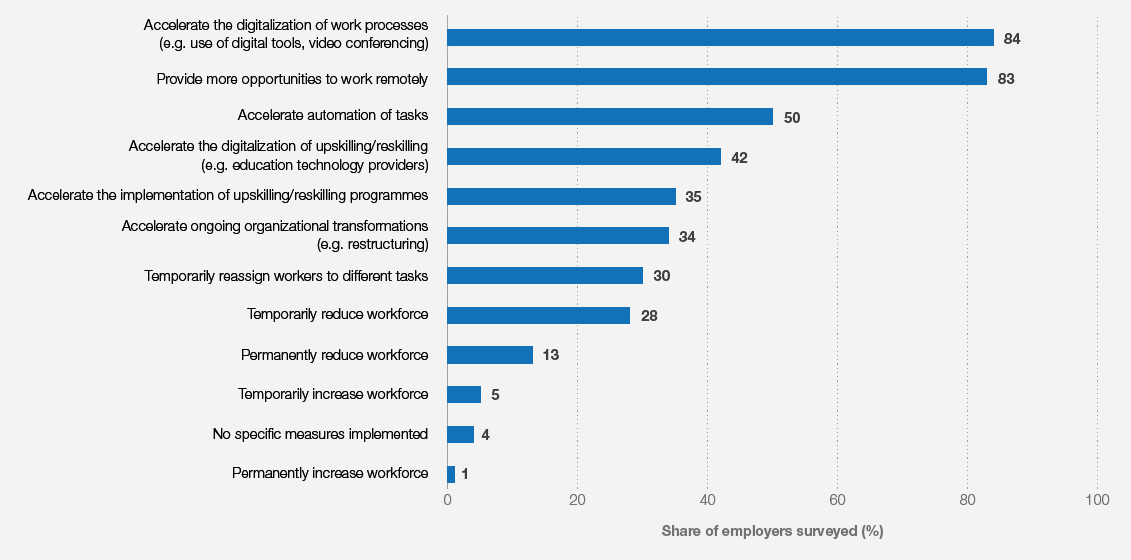
What does this mean for actual job titles? The slow burn loss of 2.6 million jobs over the past ten years is catching up. Computer Operators, Administrative Assistants, Filing Clerks, Data Entry Keyers, Payroll Clerks, and other similar roles are rapidly becoming part of the past. But not just these jobs, but many of the contracting jobs such as masons, repair people, and drywall installers.
I had to see it. So I tracked down this video of human versus robot. Not very convincing. Plus I am just waiting for the malfunction where this robot shoots up the house with that nail gun. That’s a sci-fi thriller in waiting.
But for other industries, it’s already happening. Tyson Foods switched to robot butchers due to Covid.
Then there are call centers. I’m continually frustrated by having to call customer service just to get a computer who doesn’t understand what I am saying. Plus, why doesn’t “0” get me to a person anymore? So it seems likely that any chance of good customer service is a thing of the past.
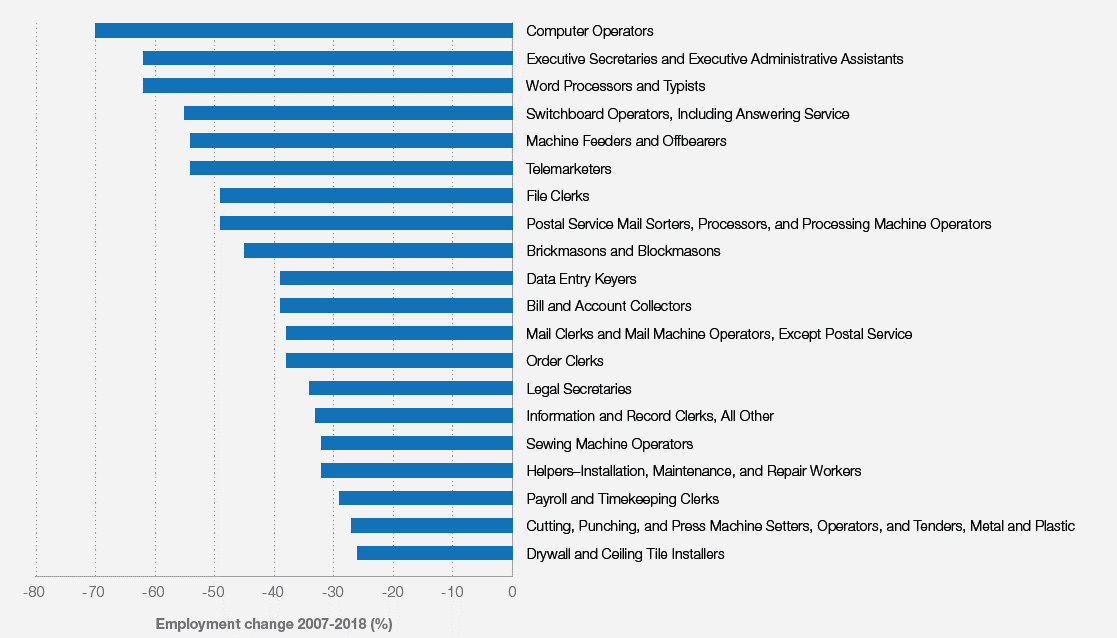
Inequities are on the rise
The combination of Covid, and what the World Economic Forum calls the Fourth Industrial Revolution is a double whammy for those holding lower-wage jobs and younger workers.
Many of the jobs these workers have do not allow for work from home scenarios. And the numbers are grim. Around 60% of workers in high-income countries such as the United States and Switzerland are unable to fully work from home. This figure rises to more than 80–90% for economies such as Egypt and Bangladesh. Those that can work from home have jobs that will be obsolete in a few years. Without a just transition in the technology world, we will leave many behind to fend for themselves.
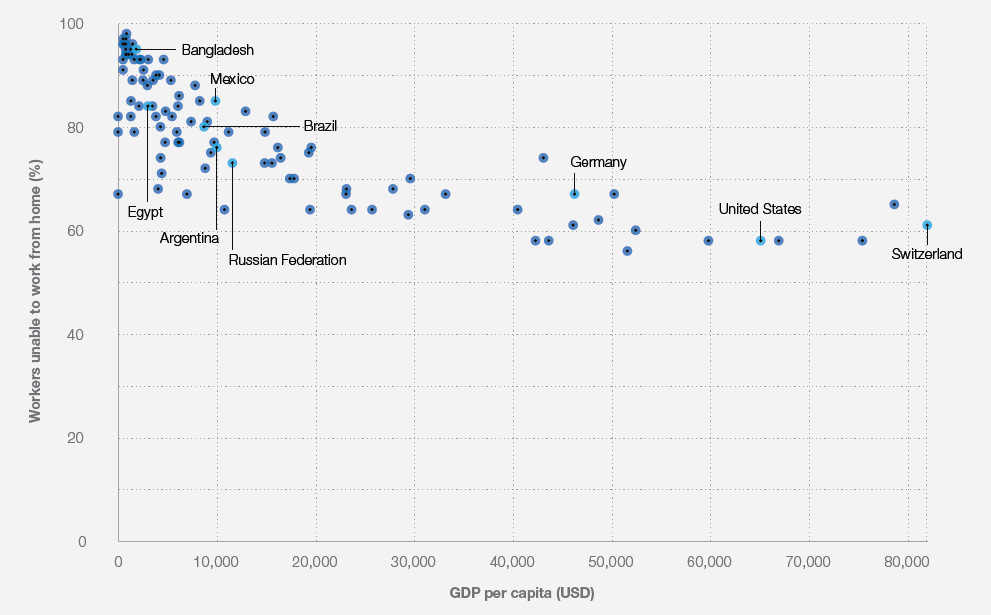
How Can You Survive (and Thrive) Post Robot-o-pocalypse?

According to surveys, the skills to keep you employed post-robot-o-pocalypse are critical thinking and analysis, problem-solving, leadership, creativity, and skills in self-management such as active learning, resilience, stress tolerance and flexibility. Additionally skills in mindfulness, meditation, gratitude and kindness were top of mind for people currently employed. Lastly, artificial intelligence, big data, the internet of things, and encryption will be broadly adopted and skills needed to successfully navigate these.
The top ten jobs of the future are:
- Data Analysts and Scientists
- AI and Machine Learning Specialists
- Big Data Specialists
- Digital Marketing and Strategy Specialists
- Process Automation Specialists
- Business Development Professionals
- Digital Transformation Specialists
- Information Security Analysts
- Software and Applications Developers
- Internet of Things Specialists
Fortunately, if you start now you’ll be all set to take on those jobs of the future. Apparently, and according to the World Economic Forum you can master statistical programming in a couple of months, leadership in just over a month, and sales in two weeks. So much for spending 4 years on a Ph.D. and progressing up the ranks in my career.
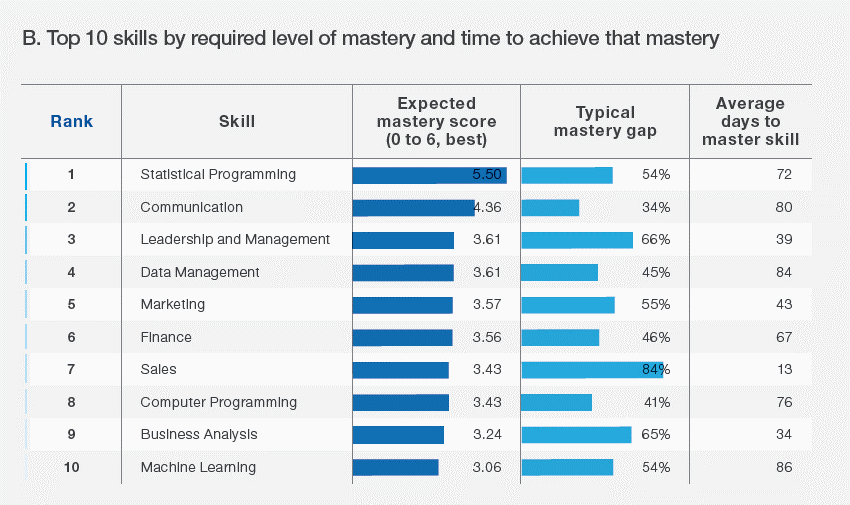
A Tech New Deal
If we decide to keep this momentum going. We need a Tech New Deal — a rapid and just transition to provide and empower those workers most affected by the tech transition.
Much like the Green New Deal, we cannot just leave the workers impacted by these shifts in the lurch. Just as we need to train the coal workers and the oil and gas rig operators in solar and wind technology, we will need to train the data entry and computer operators in the next level of data science.
The International Institute for Sustainable Development (IISD) recently proposed a Tech New Deal for the mining industry that would focus on skills development, local community economic development, public-private partnerships, and investments in new technology. This type of new deal would open the door to a reset in many industries that would allow us to create environmentally sustainable and technologically advanced growth opportunities.
And as you can see, according to the World Economic Forum, we only need a few months to do this. So, we have plenty of time before 2025. In the meantime, I will be polishing up on my robot hunting skills.








